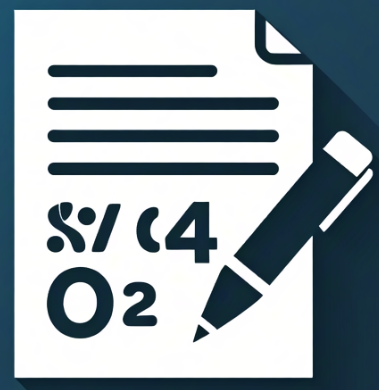Publication Ethics & Academic Integrity
Upholding the highest standards of scholarly publishing excellence
Ethics Guidelines Overview
Commitment to Ethical Excellence
Life Conflux is unwavering in its commitment to maintaining the highest standards of publication ethics and academic integrity. Our comprehensive policies ensure that every published work contributes meaningfully to the global scientific discourse while adhering to internationally recognized ethical principles. These guidelines serve as the foundation for our editorial decisions and reflect our dedication to advancing knowledge through responsible scholarship.
Important Notice: Any evidence of misconduct will result in immediate action, including manuscript rejection, publication retraction, and formal notification to relevant institutions. We maintain zero tolerance for academic dishonesty and work closely with the Committee on Publication Ethics (COPE) to ensure fair and thorough investigations.
Inclusive Language & Diversity Standards
Our Commitment to Diversity, Equity & Inclusion
Life Conflux champions an inclusive scientific ecosystem where diversity strengthens research quality and innovation. Our language policies reflect our unwavering commitment to creating accessible, respectful communication that welcomes researchers from all backgrounds, cultures, and identities. We recognize that inclusive language is not merely about avoiding offense—it is about actively fostering an environment where every voice can contribute to scientific progress.
Comprehensive Language Guidelines
- Cultural Sensitivity: Acknowledge and respect diverse cultural perspectives and practices in research contexts
- Gender-Inclusive Language: Use pronouns and terminology that reflect gender diversity and avoid assumptions
- Accessibility Considerations: Employ clear, jargon-free language when possible to ensure broad accessibility
- Terminology Evolution: Stay current with evolving language preferences in different communities and fields
- Collaborative Improvement: Work constructively with editorial teams to refine language choices
Editorial Support: Our editorial team provides comprehensive guidance on inclusive language implementation. We offer constructive feedback and alternative phrasing suggestions to help authors align their manuscripts with our diversity standards while preserving scientific accuracy and clarity. This collaborative approach ensures that ethical communication enhances rather than hinders scholarly expression.
Plagiarism Detection & Content Originality
Advanced Detection Systems
Life Conflux employs sophisticated plagiarism detection technology, including CrossCheck/iThenticate and proprietary AI-powered analysis tools, to ensure complete originality of submitted content. Our multi-layered screening process examines textual overlap, structural similarities, and conceptual duplication across millions of academic sources worldwide.
Zero Tolerance Policy: Any manuscript containing plagiarized content, regardless of extent or intent, will be immediately rejected and flagged in our database. We maintain detailed records to prevent resubmission of problematic content.
Originality Requirements
Novel Research Contributions: All submissions must present original research findings, methodologies, or theoretical insights not previously published or under review elsewhere.
Exclusive Submission: Manuscripts cannot be simultaneously submitted to multiple journals. Authors must confirm exclusive submission upon initial submission.
Proper Attribution: All referenced work, including authors' own previous publications, must be properly cited with complete attribution.
Self-Plagiarism Prevention
Authors must avoid excessive reuse of their own previously published content. While building upon prior work is acceptable and encouraged, substantial text overlap (typically >30%) with previous publications requires explicit permission and clear attribution. Our detection systems specifically monitor for self-plagiarism patterns.
Data Integrity & Image Authentication
AI-Powered Integrity Verification
Our Artificial Intelligence Review Assistant (AIRA) utilizes advanced machine learning algorithms to detect data manipulation, image alteration, and statistical inconsistencies. This technology represents the cutting edge of academic integrity enforcement, providing unparalleled accuracy in identifying potential misconduct.
Prohibited Image Manipulations
- Enhancement or alteration of specific image features
- Obscuring, moving, or removing elements within images
- Recycling or duplicating image components
- Non-uniform processing that alters selective regions
- Undeclared splicing or grouping of separate images
Acceptable Processing Standards
- Uniform brightness, contrast, or color balance adjustments
- Cropping with full original images provided as supplementary material
- Processing necessary for data interpretation (fully documented)
- Declared image grouping with clear methodology
- Standardized formatting for publication clarity
Documentation Requirements: All image processing must be comprehensively documented in the methodology section, including software versions, specific techniques applied, and rationale for processing choices. Authors must provide original, unprocessed images upon request during review or post-publication investigation.
Peer Review Ethics & Transparency
Commitment to Fair & Objective Review
Life Conflux maintains the highest standards of peer review integrity through rigorous reviewer selection, conflict of interest monitoring, and continuous quality assessment. Our review process balances thoroughness with efficiency, ensuring that every manuscript receives fair, expert evaluation while protecting the confidentiality and intellectual property of all parties involved.
Prohibited Review Practices
Identity Falsification: Creating fake reviewer profiles, credentials, or institutional affiliations
Review Collusion: Coordinating with others to manipulate review outcomes or recommendations
Report Fabrication: Plagiarizing or fabricating peer review reports from other sources
Bias & Coercion: Engaging in biased reviewing or coercing favorable evaluations
Conflict of Interest Disclosure
All reviewers, editors, and authors must disclose potential conflicts of interest, including financial relationships, institutional affiliations, personal relationships, or competing interests that could influence their judgment. We maintain comprehensive conflict monitoring systems and require annual disclosure updates from editorial board members.
Ethical Text Reuse & Permitted Publications
Theses & Dissertations
Permissible Conditions:
- Content appears only in thesis format
- Complies with university archival policies
- Accessible through institutional repositories
- Properly acknowledged and cited
Non-archived theses are treated as original, unpublished research.
Conference Proceedings
Expansion Requirements:
- Minimum 30% new substantive content
- Copyright permission (if not retained)
- Detailed methodology expansion
- Comprehensive result analysis
Abstract-only presentations require significantly less expansion.
Preprint Submissions
Open Access Support:
- Full copyright retention by authors
- Unrestricted repository posting
- Proper attribution requirements
- Version linking encouraged
No Life Conflux branding permitted on preprint versions.
Translation Works
Documentation Required:
- Publisher permission documentation
- Original author authorization
- Complete source attribution
- Translation methodology statement
Supplementary documentation must be provided for verification.
Appeals, Corrections & Dispute Resolution
Editorial Appeals Process
Authors may appeal editorial decisions through our structured review process. Appeals must be submitted within 30 days of the original decision and include substantive new evidence or demonstrate procedural errors in the initial review. Timeline: 14-21 days for appeal review completion.
Post-Publication Corrections
We maintain rigorous post-publication oversight to ensure ongoing accuracy. Corrections, expressions of concern, and retractions are issued according to COPE guidelines when errors or ethical concerns are identified. All corrections are permanently linked to original articles.
Complaint Investigation
All ethical concerns and misconduct allegations receive thorough, confidential investigation. We work closely with institutional research integrity offices and follow established protocols for fair resolution. Confidentiality is protected throughout the investigation process.
Contact Information for Ethics Concerns
For questions about publication ethics or to report concerns:
Email: ethics@lifeconflux.com
Formal Complaints: https://www.lifeconflux.com/complaints-procedure/
Ethics Hotline: +1-555-ETHICS (24/7)
Fostering Scholarly Discourse
Life Conflux encourages open, constructive dialogue on published research through our post-publication discussion platform.
Reader Comments: Moderated discussion forums for each published article
Letters to Editor: Formal correspondence addressing published content
Research Updates: Platform for sharing subsequent findings and corrections
Life Conflux Publication Ethics Guidelines
Last Updated: July 2025 | Version 4.2 | © 2025 Life Conflux. All rights reserved. These policies align with COPE and international publishing standards.
Journal Information
- Journal: Life Conflux
- Online ISSN: 3078-4816
- Publisher: Life Conflux Press Limited
- Peer Review: Single-anonymous
- Publication Model: Open Access
- Publishing Frequency: Quarterly
- Languages: English
- DOI Prefix: 10.71321

Submit Your Research
Fast-track peer review process

Journal Metrics
Impact factors & citation analysis
Research Areas
And many more specialized fields within medical informatics, digital health, and healthcare technology
Open Access Benefits
Life Conflux promotes open science principles, ensuring that groundbreaking research in medical informatics and digital health reaches the global scientific community without barriers, accelerating scientific discovery and innovation in healthcare technology and clinical informatics.
Creative Commons License

Life Conflux operates under a Creative Commons Attribution 4.0 International License, enabling unrestricted use, distribution, and reproduction while ensuring proper attribution to original authors and research integrity.
Copyright & Author Rights
Authors retain full copyright ownership of their work while granting Life Conflux the right to publish and distribute. All submissions must comply with our rigorous ethical standards and originality requirements. Published content becomes freely accessible to the global research community, promoting scientific advancement and knowledge sharing.
Key Requirements: Original research, ethical compliance, proper citations, and agreement to publication terms.
Publication Ethics
Life Conflux maintains the highest standards of publication ethics, preventing plagiarism, ensuring research integrity, and upholding international best practices. We implement comprehensive screening processes and follow COPE (Committee on Publication Ethics) guidelines to maintain scientific credibility.


